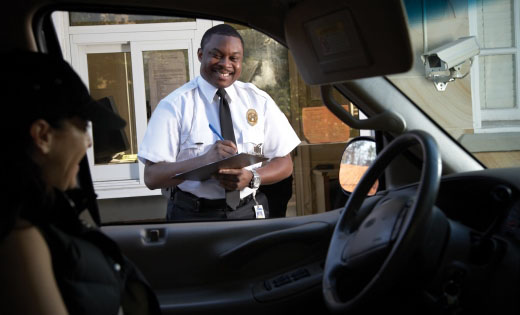
What factors do a residential community, complex or building need to weigh when deciding which security provider to hire? When selecting a security partner, keep the following five best practice considerations in mind:
1. Ability to Respond - Consider if the company has the knowledge and depth of personnel resources to handle different types of emergencies. Is the team reachable 24/7? A natural disaster that leaves the community without power or makes a primary exit road impassible has security ramifications. While no security measure can prevent these occurrences, communication, preparedness and evacuation plans need to be in place and the security team can lead these initiatives.
2. Communication - What process is in place to gather and address feedback, and maintain open dialog? Communication and homeowner involvement are key to success. Homeowners and community association leaders should be invited to work together with their security company to supply feedback and communicate concerns on an ongoing basis.
3. Residential Security-specific Training - Providing security where people live is different than handling the security for other types of environments. Does their security officer training cover customer service, manners and etiquette, fire safety, emergency preparedness, evacuation procedures, residential security procedures and effective patrolling?
4. Ease of Transition - Will you be able to receive dependable service from day one? Request a transition plan and make sure it covers who will be on your transition team, time frames and tasks to be accomplished. You want to be up and running in a realistic time frame with minimal disruption for residents and staff.
5. A Tailored and Proactive Solution - Before planning your security solution, the provider should become knowledgeable about your neighborhood, residents and a host of other areas so that they can make appropriate recommendations. Their plan should incorporate staffing levels, indoor and outdoor patrols, access points, visitor procedures, technology integration and other pertinent areas of concern specific to your community.
Well-trained security teams help a community feel safer, allowing its residents to sleep easier knowing that their neighborhood is protected.
 About the Author
About the Author
Andrew Daniels is the Vice President of Business Development for the Southeast Region at Allied Universal.























